Do Coffee Grounds Make Soil Acidic? Uses and Dangers
-
Lindsey Lawson
- Last updated:
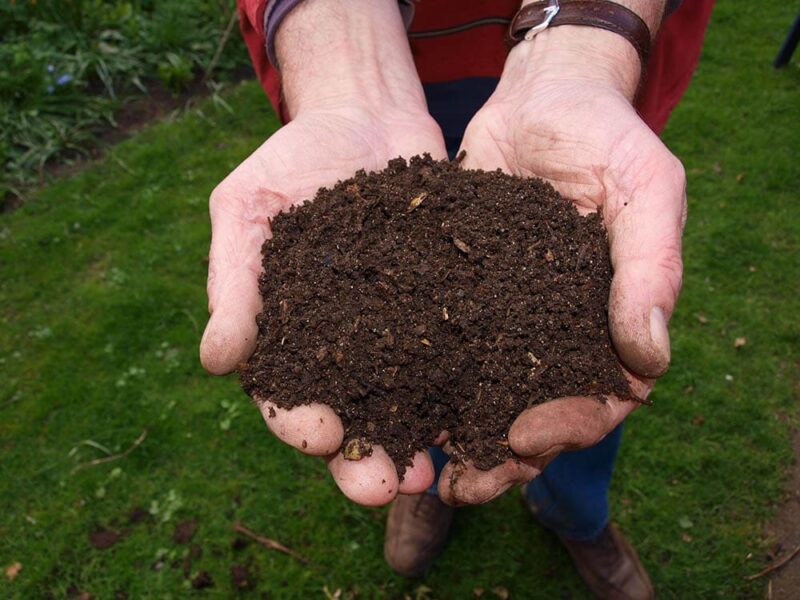
If you are a regular coffee drinker with a green thumb, you may be wondering if there’s anything you could do with those coffee grounds to help out your plants and garden. It is widely known that coffee is acidic, so would it make your soil more acidic if you were to use it in compost?
While many people feel that coffee grounds will lower the pH of the soil and are great for plants that thrive in a more acidic environment, research says otherwise. The acid in coffee is water soluble, meaning that the acidity is in the coffee itself, rather than the grounds. Used coffee grounds will have an almost neutral pH of 6.5 to 6.8.
Why Coffee Grounds May Not Be the Best for Your Garden
There is a lot of controversy surrounding the use of coffee grounds in gardening. You may have turned on your favorite gardening show and seen people go on and on about the benefits of coffee and how it can do some amazing things. Coffee is an organic material that is rich in nitrogen and other nutrients, so what’s the big deal about using it in your soil?
The truth is, a lot of caution should be used if you plan on incorporating coffee grounds into your soil, so grab your cup of joe and keep reading to learn more about the negative effects it could have on your garden and potted plants.
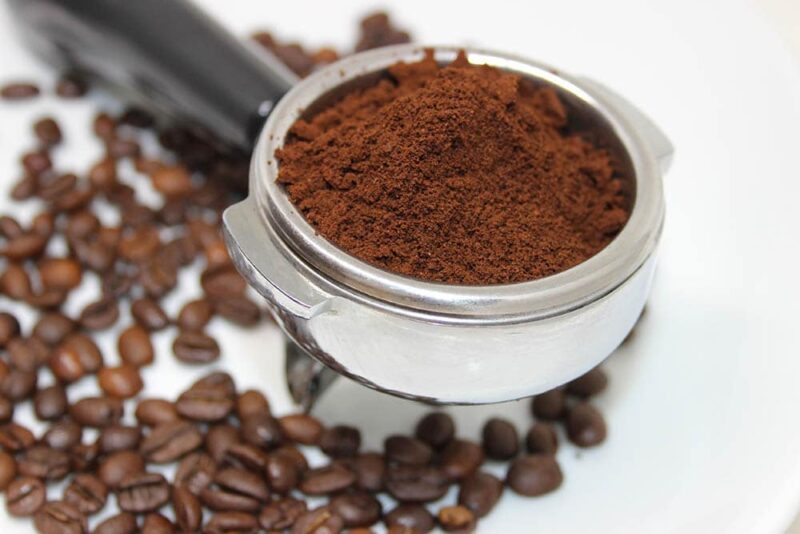
The Caffeine Can Be Very Harmful
Many studies have been conducted that prove caffeine suppresses plant growth. It reduces germination rates in many plant species by tying up the nitrogen within the soil.
Caffeine is a mutation found in certain plants like coffee trees and cocoa. This mutation allowed them to compete against nearby plants because the caffeine in the fallen leaves would affect the soil of these close by plants and inhibit their growth.
A study on plants in the Rubus genus showed that a concentration of caffeine above 0.1% hurt plant tissues. It can even slow down or stop the formation of the roots. It can also inhibit shoot growth and lead to tissue necrosis.
And while the concentration of caffeine is said to be extremely low once the coffee has gone through the brewing process, a 2012 study conducted by The Department of Nutrition, Food Science and Physiology, at the University of Navarra showed that spent grounds still contained up to 8.09 mg of caffeine per gram.
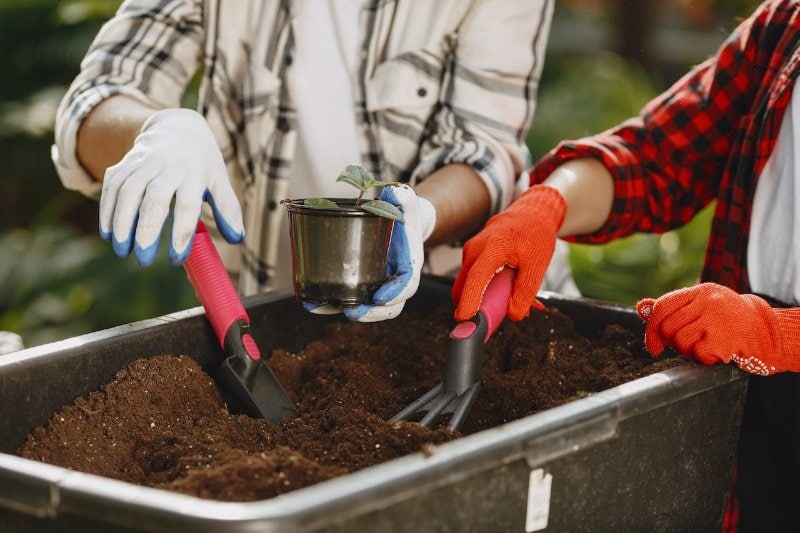
Coffee May Kill Earthworms and Harm Microorganisms
Aside from trying to acidify the soil, another popular use of coffee grounds is in compost, which will directly affect the living organisms in the soil. Coffee has some antibacterial properties, which may be great for other uses but can kill helpful microbes within the soil.
Coffee has also been proven to harm those very helpful earthworms in the soil. A published study that involved three different composting methods including vessel composting, vermicomposting bins, and aerated static pile bin composting revealed an increase in the death rate of earthworms in all three methods.
It’s Not an Ideal Mulch
Mulch should be well aerated, which is why composted wood chips can make such an excellent choice, especially when they contain a blend of leaves, bark, and other organic materials. You should err on the side of caution when using coffee grounds as mulch because they compact very quickly and can prevent water from getting in, leading to dehydration.
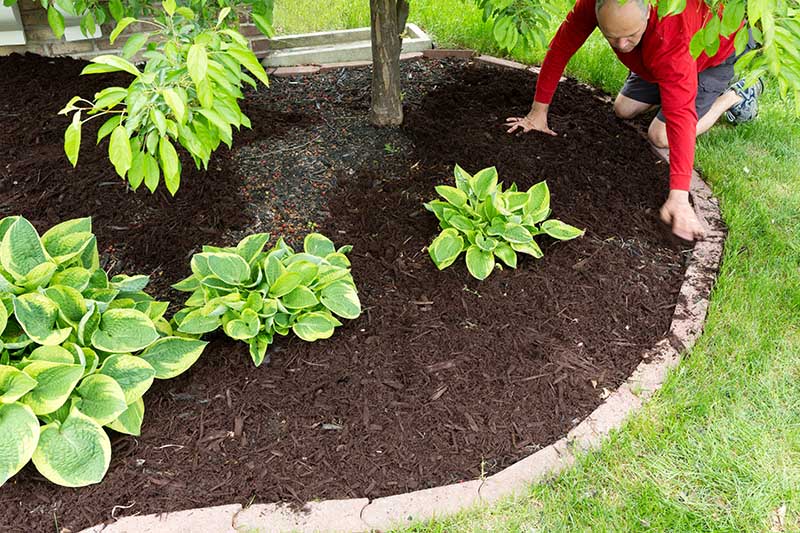
Repelling Slugs and Snails Is Only Anecdotal
Coffee grounds are said to be excellent for certain garden invaders like those pesky slugs and snails. The truth is, there is no real evidence to back up these claims because it’s all anecdotal. This myth is believed to have originated from a study where caffeine was sprayed directly on plant leaves and had been shown to kill slugs, which is completely different from using coffee grounds in the soil.
The Nitrogen Usually Isn’t Enough – Or It’s too Much
Coffee grounds are about 2% nitrogen by volume and are not to be considered a nitrogen fertilizer. Oregon State University conducted a germination test at the Grassroots Garden in Eugene, OR, in which coffee grounds were mixed with potting soil at a ratio of 25% by volume.
The lettuce seeds used in this test showed poor rates of germination and stunted growth compared to lettuce seeds planted in the potting mix without coffee grounds, proving that nitrogen fertilizer would need to be added.
You could also run the risk that if your soil didn’t need any extra nitrogen, it could potentially overload the soil and lead to restricted plant growth.
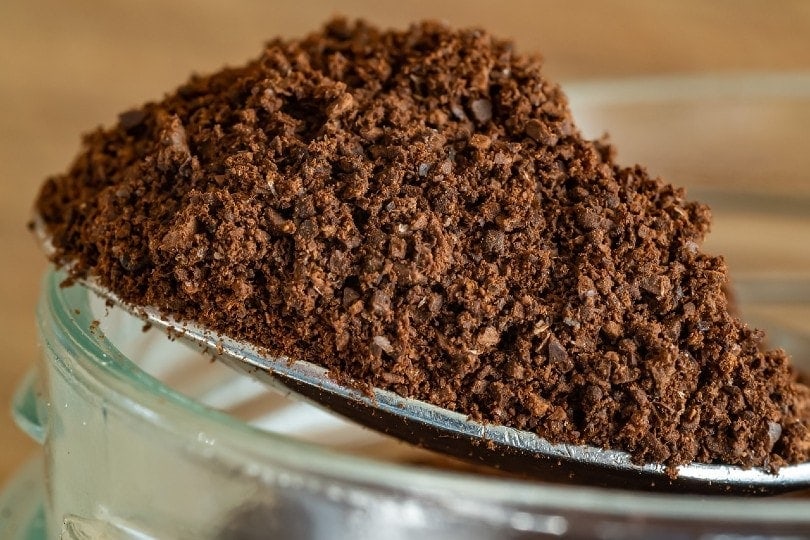
Using Coffee Wisely in the Garden
As Compost
The safest way to use your coffee grounds is by adding them to your compost but do use caution and keep an eye on your plant’s health. You will never want the coffee grounds to take up more than 10 or 20% of the total compost, though.
As a Thin Mulch
If you are a fan of using coffee as mulch and you have seen success, make sure you only use spread the grounds in a thin layer across the area to prevent them from compacting and forming a barrier for water.
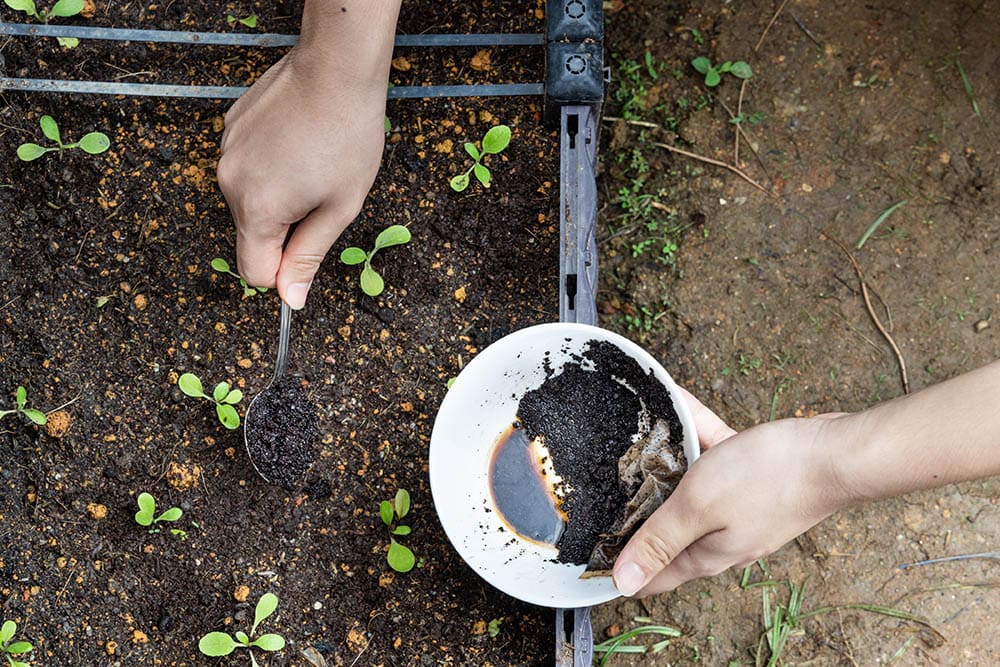
Conclusion
Coffee grounds won’t add any acidity to the soil since the grounds are water soluble and the acidity is limited to liquid coffee. Used grounds have an almost neutral pH of 6.5 to 6.8 and while fresh grounds may have a slightly more acidic pH, there are plenty of healthier ways to increase the soil pH as needed. Coffee can do more harm than good when used in a gardening environment for various reasons, so it’s important to use it wisely if you choose to do so at all.
Featured Image Credit: jokevanderleij8. Pixabay
Contents
